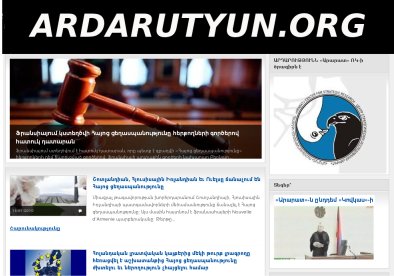|
choose language [english] [armenian] [russian] |
|

|
HOME :: ANALYSIS :: Armenian-Turkish Conflict
What Were Armenian Officials Thinking, If They Were Thinking at all? Author: Harut Sassounian | Date: 10-03-2009 | By Harut Sassounian Publisher, The California Courier Two shocking announcements made by Yerevan officials have deeply troubled Armenians worldwide. The first statement was made by Prime Minister Tigran Sargsyan in Tsakhkadzor, Armenia on February 21, during an international economic forum -- "Outlook for International Economic Cooperation: Problems and Solutions." The conference was attended by high-ranking officials and businessmen from Russia, Bulgaria, Iran and many other countries. In his speech titled, "International Economic Cooperation: New Policy," the Prime Minister invited the participation of Russia and Turkey in the construction of a new nuclear power plant in Armenia. He said that the multi-billion-dollar project had not only economic but also political significance. The existing power plant, located near Yerevan, was commissioned in 1976. Several international organizations as well as neighboring Turkey have been pressing for the closure of the Medzamor power plant for several years, citing safety concerns. The new power plant is expected to be operational in 2016. Turkish leaders have not yet responded to Mr. Sargsyan’s invitation. However, according to Russian sources, Ankara is said to be interested. An unidentified Turkish spokesman was quoted by Nezavisimaya Gazeta as stating: "The government of Turkey is anticipating an official appeal on participation in the atomic power plant from Armenian official circles. Only after that, the Turkish side may consider the prospect of participating in the project and announce its decision. If all the issues involved are complied with, Yerevan’s proposal may be accepted." Several Armenian analysts have raised serious concerns about involving Turkey in such a sensitive project. Some pointed out the risk to Armenia’s national security, given Turkey’s historical enmity. Other commentators brought up the total lack of experience of Turkish companies in constructing nuclear power plants. Ara Nranyan, an Armenian parliament member representing the ARF, a junior member of the governing coalition, stated that his party opposes Turkey’s participation in the new nuclear power plant and views it as "damaging to Armenia’s interests." How can Armenian officials offer a role in constructing a nuclear power plant to a country that denies the Genocide, refuses to establish diplomatic relations with Armenia, sets up a blockade to destroy its economy, and provides political and military support to Azerbaijan in the Artsakh (Karabagh) conflict? The second disturbing development is an invitation by Armenian officials to Turkey’s Foreign Minister to attend the Black Sea Economic Conference (BSEC) on April 16-17, just days before the 94th anniversary of the Armenian Genocide. Armenia’s six-month rotating chairmanship of BSEC ends on April 30. Armenians were further irritated by a report in the Turkish newspaper "Today’s Zaman" that "Armenia has rescheduled a foreign ministerial meeting of Black Sea countries, apparently as a goodwill gesture to ensure Turkish Foreign Minister Ali Babajan will be among the participants." Zaman reported that Armenian authorities had moved the date of the BSEC meeting "from the previously announced April 29 to April 16. The shift is significant because April 29 is only a few days after April 24." To add insult to injury, Zaman quoted unnamed Turkish officials as stating that Babajan has not confirmed his attendance, and that his participation depended on "Armenia’s commitment to the ongoing rapprochement process and the course of closed-door talks with Armenia." Turkish officials make frequent statements about “rapprochement” with Armenia in order to give the false impression that the two countries are reconciling with each other, thus hoping that the Obama administration and the U.S. Congress would not take any action on the Armenian Genocide. While Ankara officials are constantly bombarding Washington with such fake messages, the Armenian side stays astonishingly silent, giving credence to Turkish misrepresentations which are intended to undermine the prospects of any U.S. declaration on the Armenian Genocide. In a rare display of responsiveness, Tigran Balayan, the acting spokesman of the Armenian Foreign Ministry, issued a statement denying that the BSEC conference was rescheduled to accommodate Turkish concerns. Mr. Balayan, however, provided no explanation as to why the conference was not held before the month of April. It is hard to believe that the Armenian government would invite the Turkish Foreign Minister to Armenia just one week before April 24. Mr. Babajan, a Genocide denialist and high-ranking official of a hostile country that is blockading Armenia, should never be welcomed in Yerevan, unless he intends to place a wreath at the Armenian Genocide Memorial Monument and offers an apology to the Armenian people! |
|
all rights reserved 2007-2013 site designed and developed by Impresario Productions & "Ararat" Center
Yerevan, Ayguedzor Imp. 10, E-mail: info @ ararat-center.org
|
|
|
|
|

